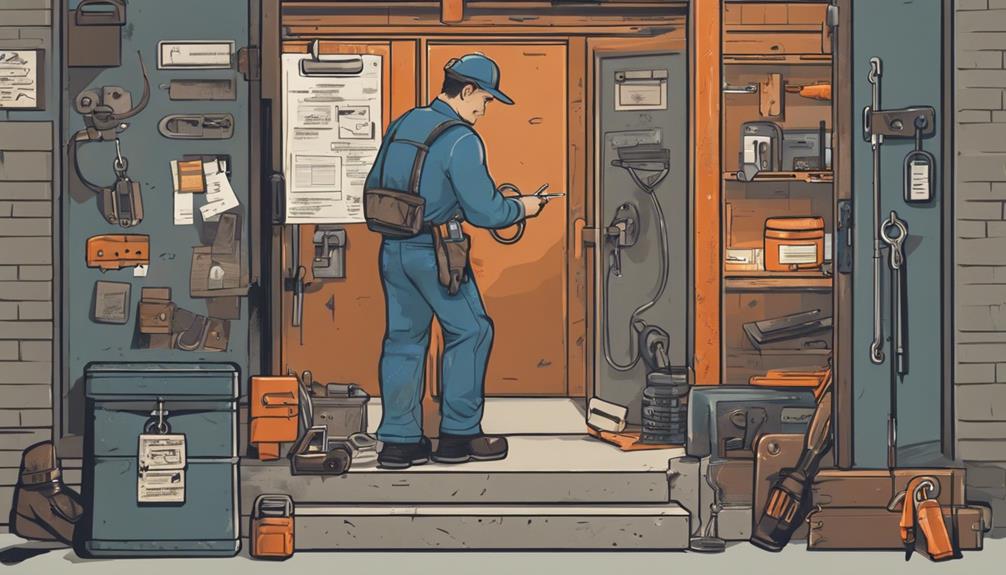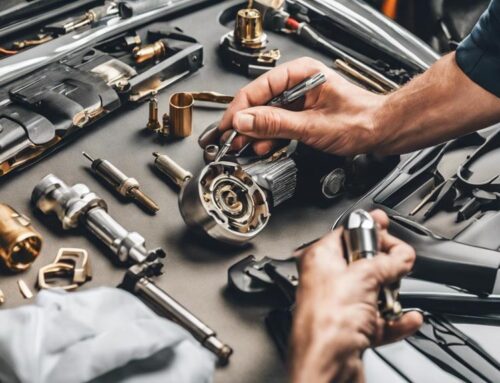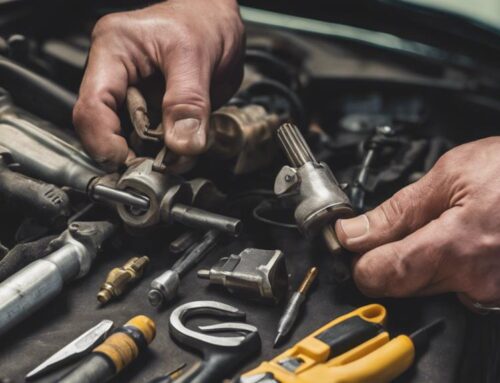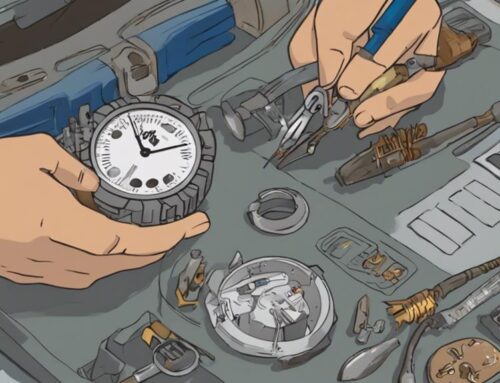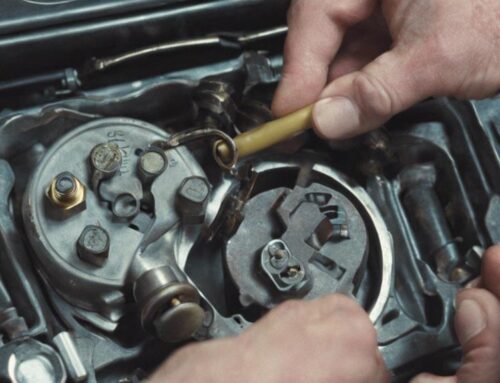Locks in your business are like sentinels guarding your assets, and keeping them in top shape is crucial. You can't afford to wait until they start failing; proactive maintenance is key. So, what steps can you take to guarantee these guardians remain reliable? From regular inspections to proper employee training, there are multiple strategies that can minimize repairs and prevent those frustrating lockouts. Understanding the nuances of lock management can make all the difference in your operational efficiency.
Key Takeaways
- Schedule regular inspections of locks at least twice a year to identify wear, rust, or damage early on.
- Clean and lubricate locks regularly to prevent friction and ensure smooth operation.
- Upgrade to high-quality locks, such as deadbolts or smart locks, for enhanced security and reduced maintenance issues.
- Implement a key management system to track keys and designate responsibility, minimizing the risk of lockouts.
- Train employees on proper lock usage and emergency procedures to ensure everyone knows how to handle potential lockouts.
Importance of Regular Lock Maintenance
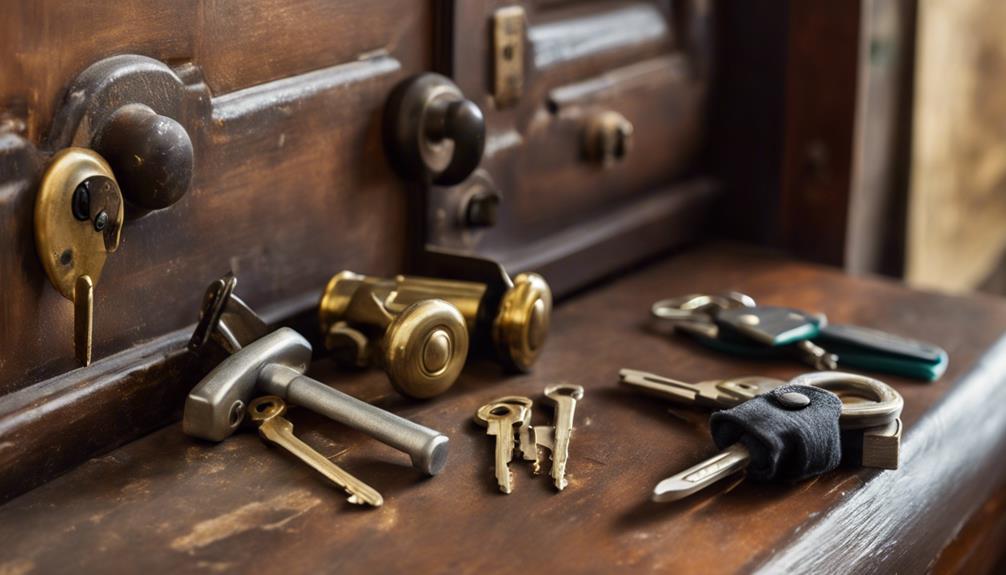
Regular lock maintenance is essential for guaranteeing the security and functionality of your business. By implementing a robust maintenance schedule, you safeguard your assets and enhance lock security. Routine checks allow you to identify wear and tear before it becomes a significant issue, preventing costly repairs and potential breaches. Confirm your locks are lubricated and adjusted properly, as this reduces friction and prolongs their lifespan. Additionally, keep an eye on any irregularities in operation, as these can signal underlying problems. Don't underestimate the importance of proactive maintenance; it empowers you to maintain control over your security measures. With a disciplined approach, you'll create a secure environment, allowing your business to thrive without interruption.
Regular maintenance also helps prevent lockouts and guarantees smooth operation, ultimately enhancing your business's security essential for preventing lock failure.
Inspecting Locks Frequently
Frequent inspections of your locks are a key component of an effective maintenance strategy. By regularly checking the condition of your locks, you can assess their durability and identify potential issues before they escalate. Look for signs of wear, rust, or damage that could compromise key security. Pay attention to how smoothly your keys turn in the locks; any stiffness may indicate underlying problems that require immediate attention. Additionally, signs like difficulty turning keys or malfunctioning mechanisms should not be ignored, as they could signify the need for professional locksmith assistance.
Cleaning and Lubricating Locks
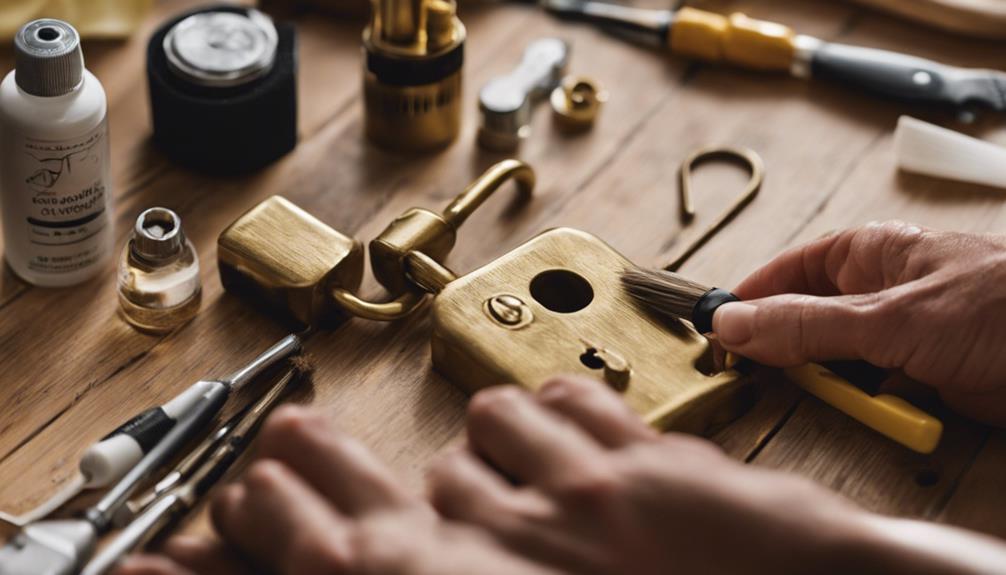
To keep your locks functioning smoothly, establish a regular cleaning schedule. Use proper lubrication techniques to prevent wear and guarantee peak performance. Regular maintenance not only extends the life of your locks but also enhances security. Additionally, consider implementing Essential Tips for Lock Repairs in Commercial Spaces to address any potential issues before they escalate.
Regular Cleaning Schedule
Establishing a cleaning schedule for your locks is essential to ascertain their ideal performance and longevity. Regular lock cleaning not only prevents buildup but also guarantees smooth operation. Use quality cleaning products to maintain your locks effectively. A well-planned schedule keeps your locks secure and functional, minimizing the risk of costly repairs or lockouts.
| Frequency | Cleaning Method |
|---|---|
| Weekly | Wipe exterior surfaces |
| Monthly | Inspect for debris |
| Quarterly | Deep clean with products |
| Bi-Annually | Check for rust or wear |
| Annually | Professional inspection |
Proper Lubrication Techniques
Cleaning your locks is just the first step to guaranteeing their best performance; proper lubrication is equally important. Different lock types require specific lubrication products to function efficiently. For standard pin tumbler locks, use a graphite powder or a silicone-based lubricant, as these won't attract dirt. For deadbolts, a spray lubricant can penetrate and protect internal components effectively. Avoid using oil-based products, as they can gum up mechanisms over time. Apply lubricant sparingly to keyholes and moving parts, then insert the key and rotate it to distribute the product evenly. Regular lubrication keeps your locks operating smoothly, reducing wear and tear, thereby preventing costly repairs and lockouts. Don't neglect this critical maintenance step; it guarantees security and longevity for your business locks.
Checking for Wear and Tear
To guarantee your locks function smoothly, you need to inspect the lock mechanisms regularly. Look for any signs of wear or damage that could compromise security. Additionally, monitor the condition of your keys, as worn keys can lead to malfunctioning locks. It's important to address any issues promptly to avoid costly lock repair costs and time for offices.
Inspect Lock Mechanisms Regularly
Regular inspections of lock mechanisms are essential for guaranteeing the security of your business. By routinely checking for wear and tear, you can greatly extend the lock lifespan and avoid costly repairs. Look for signs like difficulty in turning the key, loose components, or misalignment. These issues can compromise security and indicate the need for immediate attention or security upgrades. Actively maintaining your locks not only enhances their functionality but also reinforces your overall security strategy. Schedule inspections at least twice a year, or more frequently in high-traffic areas. Addressing minor issues promptly can prevent lockouts and guarantee your business remains secure, empowering you to focus on your operations without the worry of lock-related disruptions.
Monitor Key Condition
Your keys play an important role in maintaining security, so monitoring their condition is vital. Regularly inspect your keys for signs of wear and tear. Damaged keys can lead to lock malfunctions or, worse, lockouts. Depending on the severity, you may need key replacement to guarantee the integrity of your lock technology.
| Condition | Action Required |
|---|---|
| Minor scratches | Monitor closely |
| Deep grooves | Consider replacement |
| Bent or broken keys | Immediate replacement |
| Rust or corrosion | Clean or replace |
Upgrading to High-Quality Locks
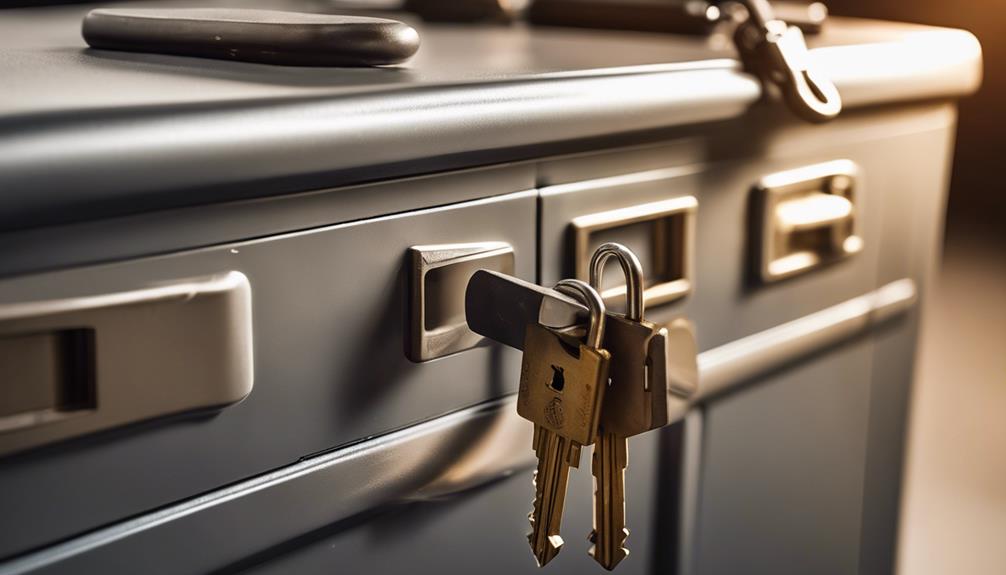
Why settle for standard when upgrading to high-quality locks can greatly enhance your business's security? Investing in superior locks, including smart lock technology, not only protects your assets but also minimizes potential lockouts. Consider these lock security upgrades:
- Smart Locks: Control access remotely and monitor entry logs. Smart locks provide added convenience and peace of mind, allowing you to manage access to your business Choosing the Right High-Security Locks for Your Business.
- Deadbolts: Provide a stronger barrier against forced entry.
- Keyless Entry Systems: Eliminate the risk of lost keys and unauthorized duplication.
- High-Security Cylinders: Offer advanced resistance to picking and drilling.
Training Employees on Lock Use
Training employees on lock use is essential for maintaining security in your business. Implementing a robust employee lock training program guarantees everyone knows the lock usage protocols. Start with a clear explanation of how each lock operates and the importance of proper handling. Regularly conduct training sessions to reinforce these protocols and update staff on any changes or new systems. Emphasize the consequences of improper use, including potential lockouts or security breaches. Encourage employees to report any lock issues immediately to prevent further complications. Document each training session and track employee participation to guarantee compliance. By prioritizing lock usage training, you empower your team to maintain security, reduce repair costs, and enhance overall efficiency in your operations.
Rekeying the locks after key loss or employee departure is also vital for safeguarding the security of your business When to Rekey Your Business Locks for Better Security. By staying proactive and regularly updating your lock systems, you can prevent unauthorized access and potential security risks.
Creating a Key Management System
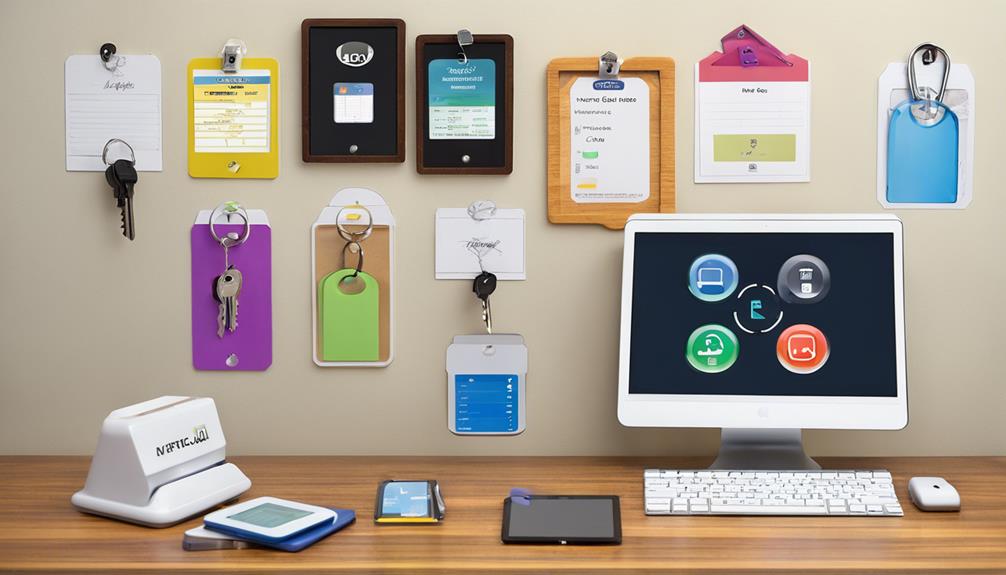
After guaranteeing employees are well-versed in lock use, establishing a key management system becomes critical for maintaining security. A robust system enhances key tracking and guarantees effective access control. Here's how to create one:
- Inventory: List all keys, including duplicates and access levels.
- Assign Responsibility: Designate a key master to oversee key distribution and returns.
- Track Usage: Implement a log to monitor which employee holds each key and when it's used. It's also essential to schedule routine checks for key audits to maintain accountability.
- Regular Audits: Schedule routine checks to verify key accountability and identify any discrepancies.
Emergency Preparedness for Lockouts
Preparing for lockouts is essential for any business to guarantee quick recovery and minimal disruption. Establish clear lockout procedures that all employees understand. Document these procedures and make certain everyone knows their roles in the event of a lockout. Designate emergency contacts who can respond immediately, whether it's a trusted locksmith or a designated staff member with spare keys. Keep this information accessible, perhaps on a shared digital platform or a physical binder. Regularly review and practice these procedures through drills, so your team is prepared when a lockout occurs. By being proactive and organized, you can mitigate the impact of lockouts and maintain operational efficiency in your business. Remember, Always Ready: Emergency Lockout Services for Businesses are available 24/7 to assist in such situations.
Low Rate Locksmith Services
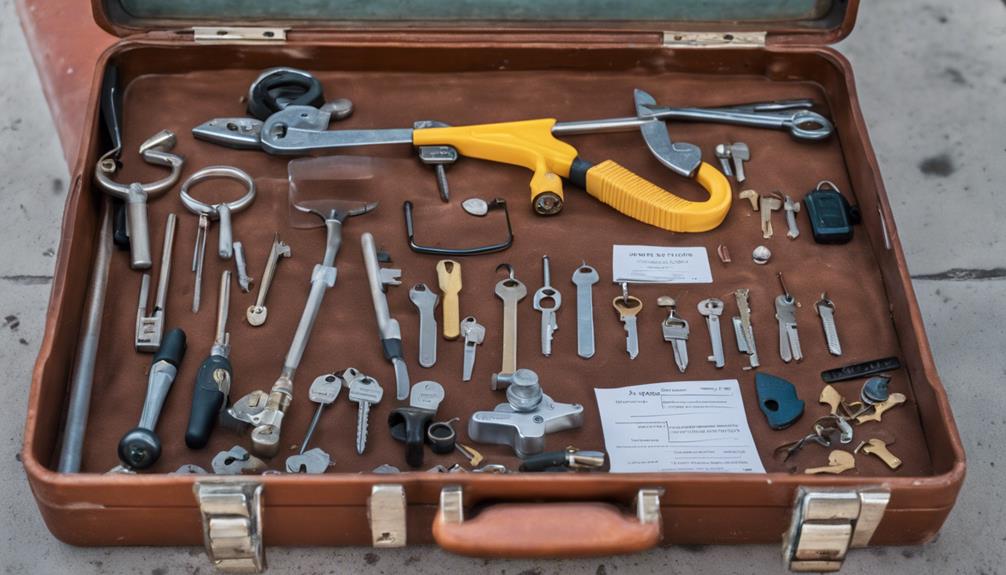
Finding reliable low-rate locksmith services can greatly enhance your business's security without straining your budget. By choosing affordable locksmiths, you guarantee consistent protection and quick responses. Here's what to look for:
- Experience: Opt for locksmiths with a proven track record in commercial security.
- Emergency Services: Confirm they offer 24/7 availability for urgent situations.
- Transparent Pricing: Get upfront quotes to avoid hidden fees.
- Reviews and Recommendations: Research customer feedback to gauge reliability.
Investing in low-rate locksmith services not only saves money but also guarantees your locks are well-maintained. Don't compromise on security; instead, leverage these services to maintain your peace of mind and enhance your business's overall safety.

